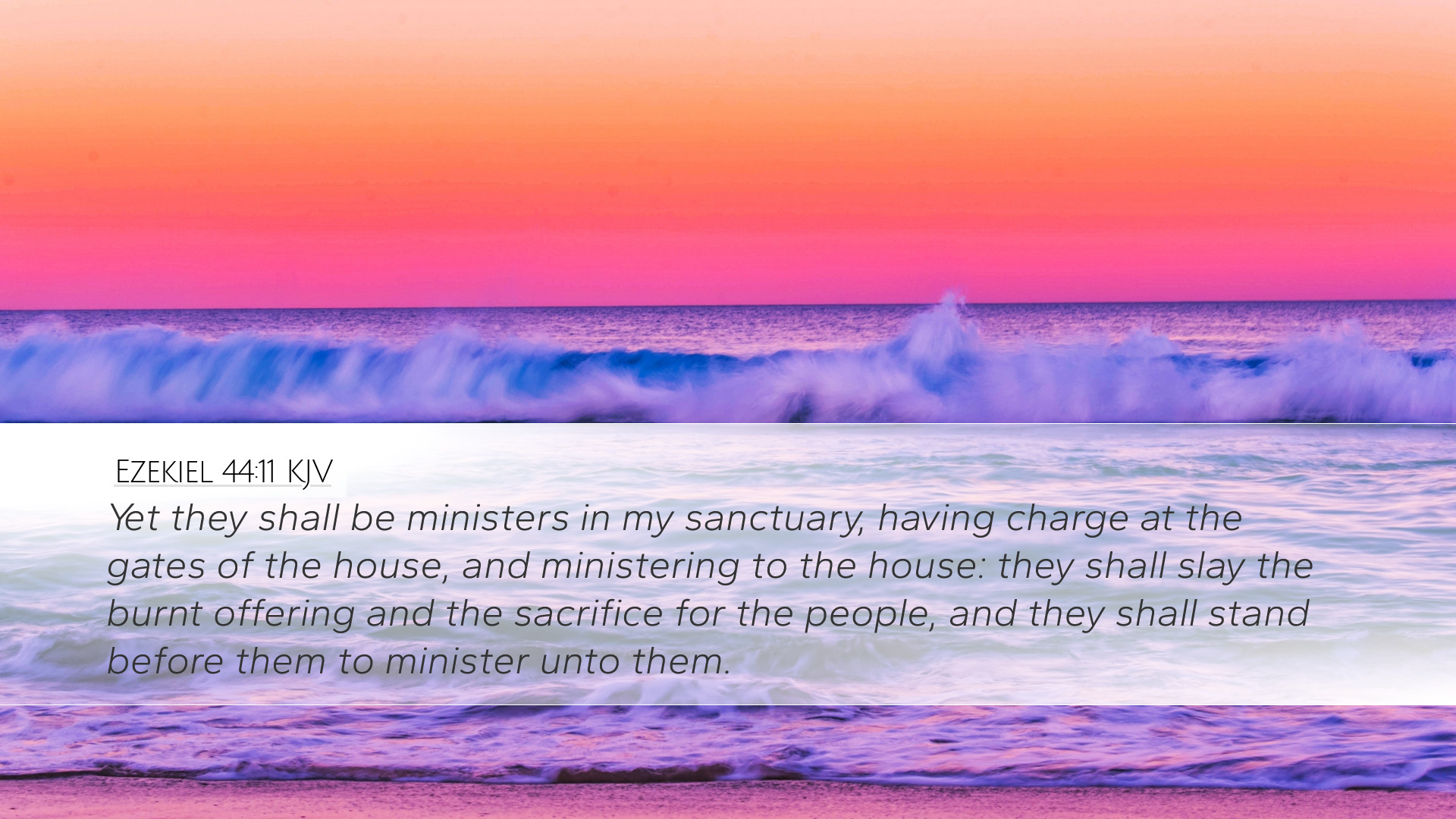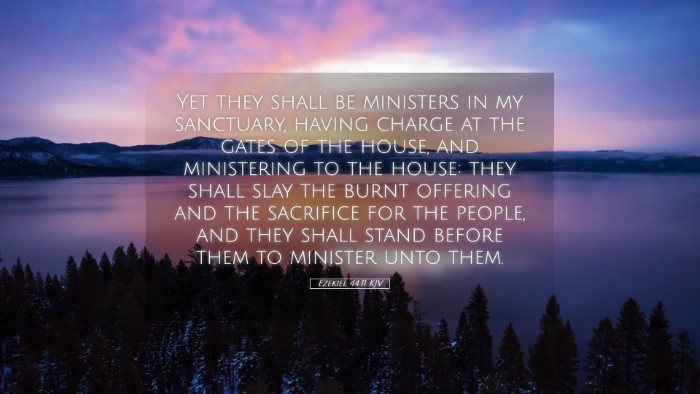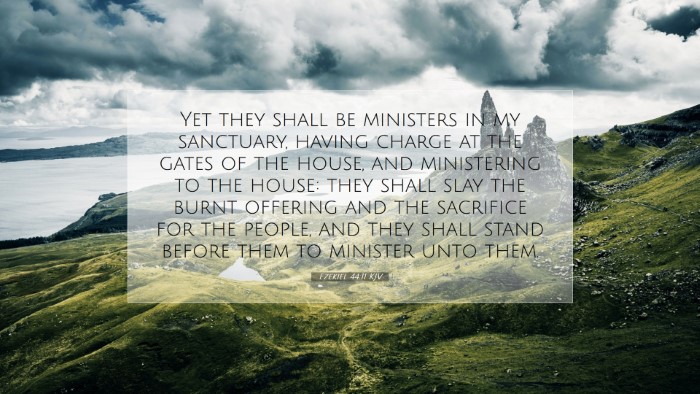Bible Commentary on Ezekiel 44:11
Ezekiel 44:11: "Yet they shall be ministers in my sanctuary, having charge at the gates of the house, and ministering to the house: they shall slay the burnt offering and the sacrifice for the people, and they shall stand before them to minister unto them."
Introduction
The passage of Ezekiel 44:11 presents a vital glimpse into the duties and responsibilities of the Levitical priests in the new temple envisioned by the prophet Ezekiel. This verse sheds light on the role these ministers play within the framework of worship and the theocratic society God sets forth. In this commentary, we will explore the insights from notable public domain commentators such as Matthew Henry, Albert Barnes, and Adam Clarke, aiming to deepen our understanding of this significant scripture.
The Role of the Ministers
Matthew Henry emphasizes the dual role of the ministers as they are tasked with both the spiritual and physical aspects of temple service. He notes, "Being ministers in the sanctuary is a high honor, and involves a sacred responsibility." The duties they are to perform at the gates suggest a role not only of service but also of protection and entry into the holy areas.
Albert Barnes adds that the mention of the gates is significant as it points to the accessibility of God's presence. These ministers will stand at the gates, ensuring that all who enter do so in a manner consistent with holiness and reverence. The gates were crucial points of access, representing thresholds into the sacred spaces of worship.
Understanding 'Slaying the Burnt Offering'
The phrase "they shall slay the burnt offering" indicates that these ministers also participated in the sacrificial system, an essential element of Old Testament worship. Adam Clarke elaborates on the importance of sacrifices in the backdrop of atonement and communion with God. He states, "The burnt offering signifies total devotedness to God, reflecting the complete surrender of the worshipper." Thus, the priests played a mediating role between God and the people, ensuring that offerings were correctly presented.
The Ministry to the People
The latter part of Ezekiel 44:11 indicates that the priests "shall stand before them to minister unto them." This highlights the relational aspect of their ministry. Matthew Henry suggests that the priests' role is not merely functional; it is deeply relational, as they directly serve the people in their worship and ensure that their needs for spiritual sustenance are met.
Albert Barnes reinforces this idea by suggesting that the priests not only perform rituals but also provide instruction and care for the people, guiding them in their relationship with God through compliance with the law and promoting understanding of worship.
The Theological Implications
Ezekiel 44:11 can be understood in a broader theological context. The ministers symbolize the ongoing need for mediators between God and humanity. The work of the Levitical priests foreshadows the ultimate Priest—Christ Jesus, whose sacrificial death fulfills the requirements for atonement. Adam Clarke points out that these roles established during Ezekiel's time accentuate God’s unwavering desire to maintain a relationship with His people through adequate spiritual leadership.
Application to Contemporary Ministry
For pastors, students, and theologians, the implications of this verse are profound. It invites a reflection on the seriousness of ministry work and the spiritual authority vested in leaders. As ministers today, it is crucial to remember that the function is not solely about proclamation but also about serving the congregants' spiritual needs.
- Reverence in Service: Like the priests of old, modern ministers are to approach their duties with reverence, ensuring that they lead by example in worship practice.
- Accessibility: The mention of the gates calls for leaders to be approachable and available to their communities, signifying the importance of being present and attentive to those they serve.
- Spiritual Mediation: Just as the Levitical priests stood before the people, pastors today serve as mediators, guiding their congregations towards God’s grace and mercy.
Conclusion
Ezekiel 44:11 provides a rich tapestry of insights regarding the roles and responsibilities of the priests in the temple. By synthesizing the interpretations of commentators like Henry, Barnes, and Clarke, one can appreciate the depth of meaning embedded within this single verse. It instructs modern leaders on the significance of their roles as mediators, caregivers, and ministers of the gospel. Ultimately, these insights allow for a deeper reverence and understanding of one's calling to serve in the context of God’s holy ministry.


